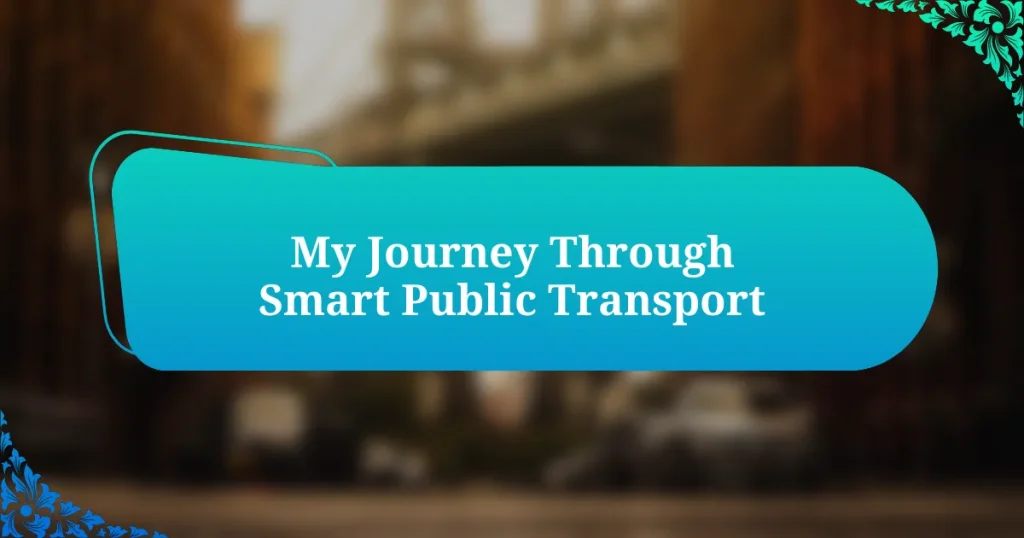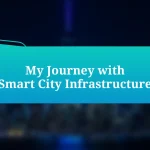Key takeaways:
- Smart public transport enhances urban navigation through real-time tracking and data analysis, improving efficiency and user experience.
- Smart city technology promotes sustainability, inclusivity, and safety, significantly impacting urban planning and community accessibility.
- Real-time information empowers users, allowing them to influence transport services and feel more secure while traveling in urban areas.
Author: Clara Whitfield
Bio: Clara Whitfield is an acclaimed contemporary author known for her poignant storytelling and evocative prose. With a background in psychology, she intricately weaves themes of human emotion and personal growth into her narratives. Clara’s debut novel, The Echoes of Yesterday, received critical acclaim and garnered her a loyal readership. When she’s not writing, Clara enjoys exploring nature and visiting local coffee shops, where she often draws inspiration for her next story. She currently resides in Portland, Oregon, with her two rescue dogs.
Understanding smart public transport
Smart public transport transforms how we navigate our urban environments. I remember the first time I used a real-time tracking app on my phone; it felt like I had a personal assistant guiding me through the chaos of city travel. Isn’t it incredible how technology can make the once-dreaded commute actually enjoyable?
In essence, smart public transport relies on advanced technology to improve efficiency, accessibility, and user experience. I often reflect on how seamless my last journey was; I arrived at the station, and without a second thought, my bus appeared right on schedule. Why settle for uncertainty when you can have precise information at your fingertips?
Moreover, smart systems analyze patterns and gather data to adapt to the needs of the community. I recall a time when my neighborhood’s transport routes were altered based on user feedback; it’s moments like these that truly highlight how engaged we can be in shaping our urban journeys. Isn’t it empowering to know our voices can influence such essential services?
Importance of smart city technology
Smart city technology is crucial for modern urban living as it enhances sustainability and efficiency. I remember the sense of relief I felt when I first saw solar-powered bus stops in my city; it was a clear sign that urban planning was being approached with care for our environment. How often do we consider the impact of our daily commuting habits on the planet?
Another aspect I find significant is its ability to foster inclusivity. I recall a time when my friend with mobility challenges shared how a smart app helped her navigate public transport seamlessly, providing real-time information about accessible routes. Isn’t it inspiring to see technology break down barriers and create more equitable access for everyone in our communities?
Finally, smart city technology promotes safety through data-driven strategies. Once, while waiting for a late-night bus, I was reassured by the real-time crime statistics displayed on the nearby screen. This level of transparency not only builds trust but also creates a sense of community accountability. How reassuring is it to know we can travel with a little more confidence thanks to embedded smart solutions?
















